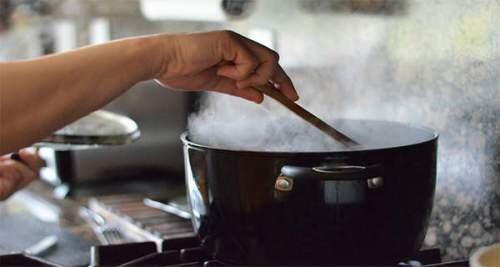We store all leftovers in the fridge to reheat the next day or on another day, to avoid food waste. But did you know that this habit was one of the most common causes of food poisoning? These remains can be toxic! Here are 7 foods that should not be reheated. Many nutriments, even reheated several times, not dangerous for the organism. However, some of them, when heated a second time, can be toxic and harmful because they lose their nutrients. To avoid any complications, here are seven foods that should not be consumed again. First spinach, although spinach is considered a healthy food, they must not be heated to the risk of becoming toxic. Spinach should be eaten immediately after cooking. The main reason they contain nitrates which when heated (again) turn into nitrites, a substance carcinogenic and highly toxic for the body. Second, celery, usually, this food is the basis for the preparation of soups. As spinach, celery contains nitrates turn into nitrites once reheated. If you eat a soup made of celery, you should eat immediately. Tip: better to avoid celery (and carrots) in the soup because we tend to keep for several days in the fridge and therefore the heat several times. Third, beet like the food mentioned above, beet also contains nitrates which can be very harmful to the body once reheated. Fourth, Potato which is a handy to-eat food and cooking. Due to its high nutritional value, it has many health benefits. However, its benefits can be lost if you do not eat them the day they are cooked. This food will be toxic to your health once warmed. Fifth, when heating eggs fried or cooked (in microwave for instance), they can be very toxic to your body and digestive system. Sixth, the chicken can be extremely hazardous to health when consumed one (or more) day (s) after preparation. The action of heat the meat results in a change of the structure of proteins and may cause digestive problems. And unlike other red meat, chicken contains much more protein. This is also the reason why people have a habit of eating cold. If you decide to warm up, be sure to heat up your food at a low temperature over a longer period.











